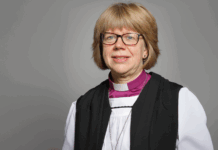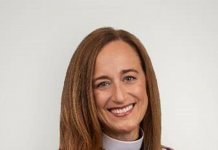April 20, 2022
Dear Friends in the Episcopal Diocese of South Carolina,
Earlier today, the South Carolina Supreme Court posted a final decision on the property case that has been in dispute since the first lower court decision in 2014. Their decisions will no doubt bring joy to many in our diocese, but for others, there will be grief in the possible finality of a loss they have been feeling for nearly 10 years. My heart is with each of you.
The South Carolina Supreme Court has decided that all real and personal property, including the St. Christopher Camp and Conference Center, have been held “in trust for the benefit of the National Church and the Associated Diocese,” meaning the Episcopal Diocese of South Carolina.
As to the parishes, their decisions were based on a number of factors, but in the end, they found that 14 parishes (of the 29 previously named) did create an “irrevocable trust in favor of the National Church and its diocese” (the Episcopal Diocese of South Carolina – the “Associated Diocese”). These 14 parishes are as follows: Christ Church, Mt. Pleasant; Good Shepherd, Charleston; Holy Comforter, Sumter; Holy Cross, Stateburg; Holy Trinity, Charleston; St. Bartholomew’s, Hartsville; St. James, Charleston; St. John’s, Johns Island; St. Jude’s, Walterboro; St. Luke’s, Hilton Head; St. David’s, Cheraw; St. Matthew’s, Fort Motte; Trinity, Myrtle Beach; Old St. Andrew’s, Charleston.
This leaves 15 parishes that the Court found “did not create a trust in favor of the National Church or its diocese, and thus those fifteen Parishes retain title to their real estate.” These parishes are as follows: All Saints, Florence; Church of our Saviour, John’s Island; Church of the Cross, Bluffton; Epiphany, Eutawville; Redeemer, Orangeburg; Resurrection, Surfside/Myrtle Beach; St. Helena’s, Beaufort; St. Paul’s, Bennettsville; St. Paul’s, Summerville; St. Philip’s, Charleston; St. Luke & St. Paul, Charleston; St. Michael’s, Charleston; Trinity, Edisto; and Trinity, Pinopolis. The Court also included “Christ-St. Paul’s,” Conway in this listing, but likely intended Christ-St. Paul’s, Yonges Island, as St. Paul’s, Conway was noted earlier as a parish excluded from the lawsuit.
I call on each of you to join me in prayer for all of the beloved people of this diocese and all who have been affected by the Court’s decisions today. We are still working to understand the immediate path forward and promise to be in communication with you as our legal team helps us determine what comes next. May we focus together on reconciliation and the way of love as we journey together on the road ahead, centered in Christ’s love for all of us.
In his second letter to the church in Corinth, St. Paul beautifully expresses the heart of the Gospel, “in Christ, God was in the world reconciling the world to himself.” He said this to a people who had known conflict with one another. While he courageously engaged difficult disagreements where matters of importance were at stake, St. Paul always did so in service of the larger purpose of God’s reconciliation of all people through Christ. It is in that same spirit that you have walked this journey and that we now walk into a bright future, one in which we will focus on the reconciling power of the Gospel to transform injustice, to heal the brokenhearted, and to build God’s beloved community. I look forward with joyful anticipation to our new season of ministry.
Faithfully yours,
Bishop Ruth Woodliff-Stanley



